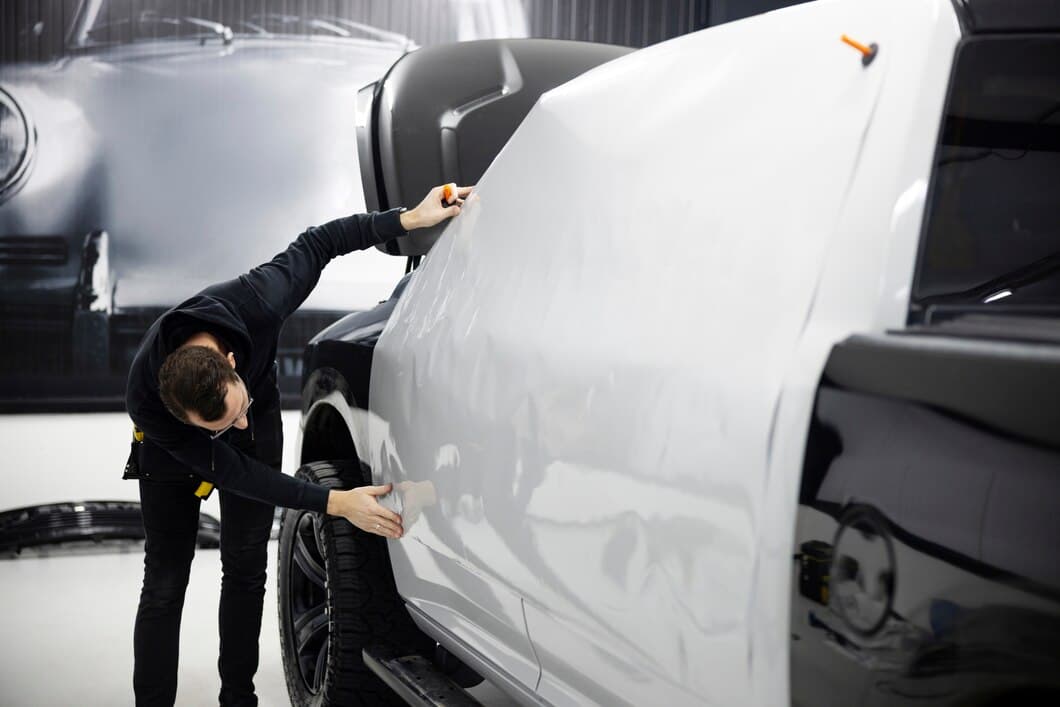
This article provides an overview of the common faults that can occur with wiper systems, including worn or damaged wiper blades, clogged or frozen nozzles, faulty motors, and electrical problems.
Regular maintenance and inspection of the wiper system can help prevent these faults from occurring, ensuring that the system is functioning properly and providing optimal visibility for the driver.
Causes of wiper noise
One of the most common causes of wiper noise is worn or damaged wiper blades. Over time, the rubber on the wiper blades can become worn or brittle, causing it to skip or chatter across the windshield. This can be especially noticeable when the windshield is dry or has a light coating of dirt or debris.
Another potential cause of wiper noise is a buildup of dirt or debris on the windshield. This can create a layer of friction between the wiper blades and the glass, causing them to make a screeching or chattering sound. It is important to clean the windshield regularly to remove any dirt or debris that may be causing noise.
A third potential cause of wiper noise is a misaligned wiper blade. If the wiper blades are not aligned properly, they may not make full contact with the windshield, causing them to skip or chatter. This can be adjusted by manually aligning the wiper blades or by consulting a mechanic.
Finally, worn or damaged wiper arms can also cause wiper noise. The wiper arms are the metal arms that hold the wiper blades in place. If the wiper arms are worn or damaged, they may not be able to hold the wiper blades in place properly, causing them to make noise.
Causes of slow or intermittent wipers

Causes of wipers stopping in the wrong position
One possible cause of wipers stopping in the wrong position is a faulty wiper motor. The wiper motor is responsible for providing the power to move the wipers, and if it fails, the wipers will not be able to move at all. Another possible cause is a problem with the wiper linkage. The wiper linkage is the system of rods and gears that connects the wiper motor to the wipers, and if it is damaged, the wipers will not be able to move properly.
A third possible cause of wipers stopping in the wrong position is a problem with the wiper switch. The wiper switch is the switch that controls the wipers, and if it is faulty, the wipers may not be able to turn on or off properly. Finally, a problem with the wiper fuse could also cause the wipers to stop in the wrong position. The wiper fuse is the fuse that protects the wiper motor from electrical damage, and if it blows, the wiper motor will not be able to receive power.
If you are experiencing problems with your wipers, it is important to have them checked by a qualified mechanic as soon as possible. Driving with faulty wipers can be dangerous, as it can impair your visibility and increase your risk of an accident.
Here are some additional tips for troubleshooting wiper problems:
Causes of wipers not working

Common causes of wiper failure include blown fuses, faulty wiring, a bad wiper motor, or a damaged wiper transmission.
Other potential issues can stem from a defective wiper switch or relay, a problem with the wiper control module, or corrosion or debris buildup on the wiper components.
Additionally, worn or damaged wiper blades can also lead to poor wiper performance and reduced visibility during inclement weather conditions.
It's important to note that diagnosing the exact cause of wiper failure requires proper troubleshooting and inspection by a qualified mechanic or automotive technician.
Causes of smeared or scratched windshield
One of the most common causes of a smeared or scratched windshield is dirty or worn wiper blades. Over time, wiper blades can accumulate dirt, grime, and debris, which can scratch the windshield when they are used. Additionally, old or worn wiper blades may not make good contact with the windshield, which can also lead to smearing.
Another common cause of a smeared or scratched windshield is a dirty or damaged windshield washer fluid reservoir. If the reservoir is dirty, it can contaminate the washer fluid with dirt or debris, which can then be deposited on the windshield when the wipers are used. Additionally, a damaged reservoir may leak washer fluid onto the windshield, which can also lead to smearing.
Finally, a smeared or scratched windshield can also be caused by a problem with the wiper motor or linkage. If the wiper motor or linkage is not working properly, it may not be able to move the wiper blades across the windshield effectively, which can lead to smearing or scratching.
Causes of wiper blades tearing or splitting
Wiper blades can tear or split due to several reasons. One common cause is exposure to extreme weather conditions, such as intense sunlight or freezing temperatures. These conditions can cause the rubber on the blades to deteriorate and become more susceptible to tearing or splitting. Another cause of wiper blade damage is the accumulation of dirt, grime, and debris on the windshield. When the wiper blades are used to wipe away this debris, it can create friction that can damage the blades.
In addition, using the wiper blades on a dry windshield can also cause damage. When the blades are used without lubrication, they can create friction that can wear down the rubber. This can lead to tears or splits in the blades. It is important to make sure that the windshield is wet before using the wiper blades to avoid damage.
Causes of wiper motors burning out

Causes of wiper linkages breaking
Wiper linkages can break due to a variety of reasons. One common cause is wear and tear. Over time, the metal components of the linkage can become weakened and may eventually snap. Another common cause is corrosion. Rust can build up on the metal components of the linkage, causing them to become brittle and prone to breakage. Additionally, wiper linkages can break if they are subjected to excessive force. This can happen if the wiper blades are frozen to the windshield and the driver tries to force them to move.
In addition to these common causes, wiper linkages can also break if they are improperly installed. If the linkage is not properly aligned, it can put stress on the components and cause them to break. Additionally, if the linkage is not properly lubricated, it can increase friction and wear on the components, leading to breakage.
To prevent wiper linkages from breaking, it is important to keep them properly maintained. This includes regularly cleaning and lubricating the linkage, as well as checking for any signs of wear or damage. If you notice any problems with your wiper linkage, it is important to have it repaired or replaced as soon as possible to prevent further damage.
Frequently Asked Questions
Can a blown fuse cause wiper problems?
Yes, a blown fuse can cause wiper problems. If the fuse is blown, power will not be able to reach the wiper motor, causing the wipers to not work.
Can worn wiper blades cause wiper problems?
Yes, worn wiper blades can cause wiper problems. Worn wiper blades will not be able to effectively clear water and debris from the windshield, which can lead to reduced visibility and safety hazards.
Can a faulty wiper motor cause wiper problems?
Yes, a faulty wiper motor can cause wiper problems. A faulty wiper motor will not be able to power the wiper blades, causing the wipers to not work.
Can a faulty wiper transmission cause wiper problems?
Yes, a faulty wiper transmission can cause wiper problems. A faulty wiper transmission will not be able to transmit power from the wiper motor to the wiper blades, causing the wipers to not work.
To Sum Up
To sum up, common faults with the wiper system include worn-out wiper blades, a faulty wiper motor, a blown fuse, or a problem with the wiring.
It's advisable to have your wiper system inspected regularly to identify and fix any potential issues before they worsen. Regular maintenance can help ensure optimal wiper performance and contribute to overall driving safety.